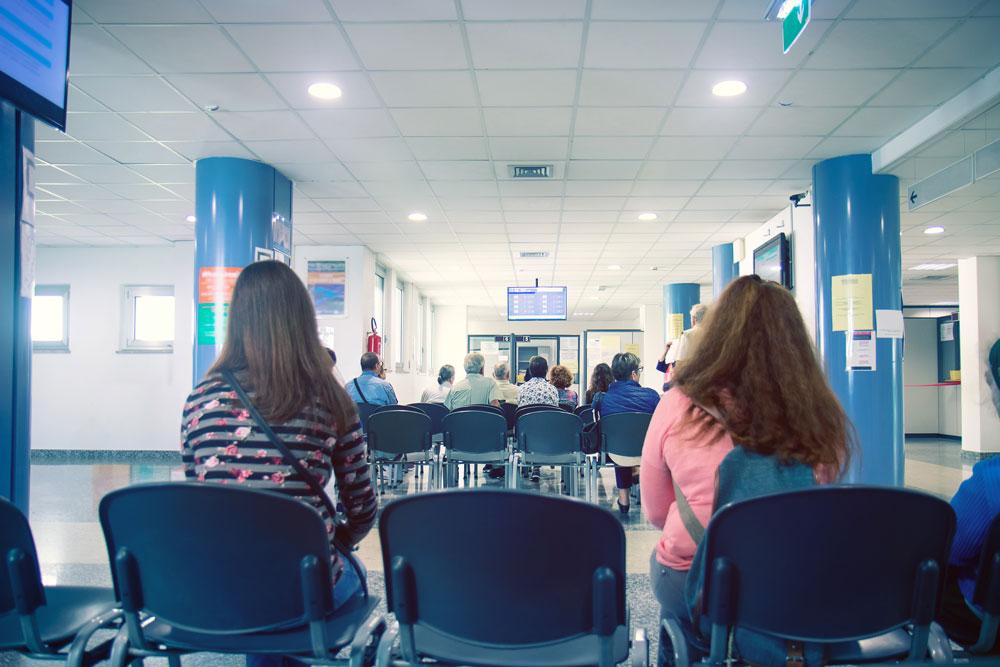The pandemic has created a radical change in working practices across the country, with remote working and virtual meetings becoming the norm for many. The NHS finance function, and other corporate services, are no different, writes Sarah Day
The changes wrought by Covid-19 are well documented, with every part of the economy feeling the impact of a disease that nobody was expecting. We know that the pandemic has caused fundamental change in the NHS and the after effects will be felt for many years to come. NHS Providers has predicted that the backlog of treatment could take up to five years to recover in some areas. But the impact on the health service was not just felt on the frontline, with rapid and significant changes also made to the financial regime.
On 11 March 2020, the Chancellor of the Exchequer announced that ‘whatever extra resources our NHS needs to cope with coronavirus – it will get’, signalling a period in the financial history of the NHS like no other. With the cancellation of most elective activity to prepare for the Covid-19 surge and a repurposing of many facilities, the traditional method of moving money around the NHS through payments for contracted activity, became impossible. Instead, organisations received block payments, based on the most recent financial information that NHS England and NHS Improvement had – the costs of running the NHS as of December 2019.
Suddenly a significant area of potential conflict was removed and, instead of worrying about whose responsibility it was to pay for what, NHS organisations across all sectors were working towards a common goal, with the certainty that any costs incurred as a consequence, would be covered by the government’s commitment to supporting the NHS. This removal of financial barriers clearly demonstrated how well organisations can work together and is driving some of the financial changes that we are seeing now. But this funding change did not happen in isolation. Additional resources for social care allowed people to be discharged from the NHS much more quickly. Financial assessments were paused which enabled placements to be found more rapidly and the discharge process became much simpler for many. Across the country, organisations in both health and social care have reported improved relationships and system working as a result of these combined changes.
The relaxation of financial rules and organisational boundaries enabled staff and equipment to move to where they were most needed. The mutual aid approach to ensuring that resources were in the right place, meant that organisations could easily call on their neighbours for assistance when needed. And it wasn’t just clinical staff who worked in new areas. Members of finance teams were also redeployed, distributing PPE, supporting testing centres and, more recently, getting involved in the vaccination programme. Directors of finance were involved in the command-and-control structure that was implemented across local systems, supporting clinical colleagues to make rapid decisions around the resources and equipment needed to tackle the pandemic.
But it wasn’t a free for all. Financial governance processes remained in place, but staff were authorised to make quick decisions and seek approval simultaneously. The national capital expenditure process was streamlined to enable organisations to make the changes that they needed, without having to wait for the normal length of time. Throughout the pandemic, boards have continued to meet, albeit virtually, to discuss and oversee the financial performance of their organisations and assess the decisions taken. One unexpected benefit of the move to virtual board meetings has been the necessary shortening of meeting time which means that organisations have had to consider what is really important to discuss at the executive level and which issues could be dealt with differently. And subsequently, NHS England and NHS Improvement have held a number of Covid-19 audits to review financial processes during the various waves of the pandemic.
But what does all this mean for NHS finance now and in the future?
Prior to the pandemic, the NHS was already thinking about moving away from activity-based payments. The approach did not fully support the intended move to more integrated working, as it potentially encouraged trusts to keep doing more of the same, rather than thinking about pathway transformation. The pandemic has accelerated this change. Payments since March 2020 have been, and continue to be, on a block basis for all providers. There is widespread agreement that nobody wants to go back to how it was. The certainty of income levels that a fixed payment affords, enables trusts and their wider systems to consider new ways of providing care or delivering it in new settings.
The transformational ambitions that the NHS set out in the Long term plan in January 2019, are more likely to be realised in a simpler payment system. The proposed aligned payment and incentive system to support the NHS going forward, recognises that a fixed element of income supports change. However, the new methodology will also include a smaller variable element to continue to provide that financial lever to meet national priorities. Currently that is around recovering the levels of elective care and addressing the backlog of waiting lists.
There are other small, but significant, changes that have arisen through the approach taken to the financial regime during Covid-19. The move away from activity-based payments and organisational boundaries, meant that the monthly process of raising invoices between NHS organisations, was paused. Many of these invoices relate to patients who are treated away from their home county or area and accounted for around 340,000 invoices annually. The associated transactional costs both nationally and in local workforce requirements, were significant. Removing this unnecessary administrative burden freed up staff to support the pandemic response and, in the future, will give finance staff more time to support transformational change in their organisation and system – a much more beneficial use of scarce resources for all concerned.
The pandemic has created a radical change in working practices across the country, with remote working and virtual meetings becoming the norm for many. The NHS finance function, and other corporate services, are no different, with many staff working at home for some, or all, of the time. As a consequence, NHS organisations have seen overhead costs drop and many are questioning how to best use their estate in the future – could a hybrid working model be the future for corporate functions, freeing up more space for clinical care at a time when social distancing means that more room is needed for even the most routine appointments.
The recent white paper Integration and innovation: working together to improve health and social care for all sets out a vision for the NHS which removes many areas of traditional competition and seeks to create statutory integrated care systems (ICSs) across the country. This was an ambition in the Long term plan but the learning from working together closely during the pandemic and the relationships created, mean that this vision is already well on its way to becoming reality. But ICSs must be supported in their endeavours by the government. The NHS not only needs certainty of funding over the next few years, the whole health and social care system requires sufficient investment to really build on the learning from Covid-19 and tackle the challenges that were already in the system.
The NHS has been at the forefront of the country’s response to Covid-19 but, arguably, faces an even more challenging time to recover from it. ICSs present an opportunity to do things differently, building on what we have learnt about what supports, or hinders, system working. But the proposed structural changes must be supported by an appropriate financial regime that encourages and incentivises the correct behaviours. Early signs are promising, and the will is there at a national level and across all sectors to maintain the beneficial changes caused by the pandemic. We all have a responsibility to keep up the momentum.
Sarah Day is Policy and Research Manager at the Healthcare Financial Management Association.





